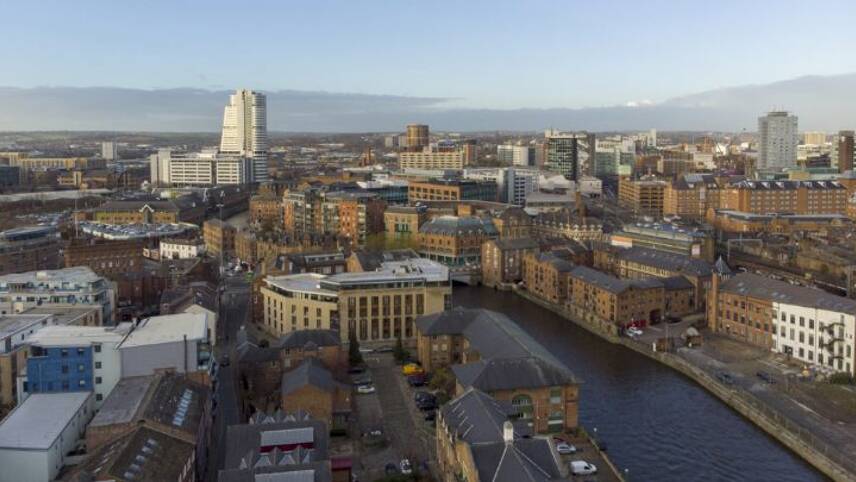Register for free and continue reading
Join our growing army of changemakers and get unlimited access to our premium content

Leeds (pictured) was one of the UK councils to have helped develop the framework
Published today (13 December), the ‘Build Upon’ framework sets out a standardised list of environmental, social and economic indicators that local authorities can apply to either a single project or an entire scheme.
There are indicators on operational emissions, and reducing them in line with long-term climate targets, as well as on climate resilience. Specific issues covered in the environmental space include improving energy efficiency, tackling energy poverty and self-generating clean energy.
Also detailed are metrics to support improvements in the health and wellbeing of building occupants, and to maximise the economic benefits of a project or overarching scheme. This latter part of the framework includes job creation, cost savings, upskilling and more.
More than 30 cities and local authorities across Europe supported the development of the framework, as did the World Green Building Council, Climate Alliance and the Buildings Performance Institute Europe. UK-based councils offering support included Leeds, Cambridge, Hammersmith and Fulham, and Essex County Council.
UKGBC hopes the framework will help councils to deliver better renovation schemes and to better track the outcomes, thus building the business case for future schemes.
“Building renovation can deliver a triple win for local communities – not only can it deliver significant carbon reductions, but it can also boost local economies through job creation as well as deliver health and wellbeing benefits through improving the quality of our homes – making them warmer, more comfortable and cheaper to run,” said UKGBC’s director of communications, policy and places Simon McWhirter.
“Through optimising the use of high-quality impact data, this framework seeks to support local government in tracking the effectiveness of renovation schemes and ultimately scale up the many benefits wide-scale renovation can bring to communities.”
The majority of the UK’s top-tier councils have declared a climate emergency, with most having set a pre-2050 net-zero target or planning to do so. But councils have repeatedly cited challenges with decarbonising buildings under the central Government’s current approach.
By UKGBC’s calculations, meeting net-zero in line with the Government’s long-term targets will require the retrofitting of 108 homes every hour over the next 25 years. The Heat and Buildings Strategy, published in October, includes a £450m boiler upgrade scheme that will run for three years and is targeting 90,000 homes. Many green groups had hoped for a longer-running scheme, given that there are 29 million domestic properties in the UK, as well as a national funding scheme for things like insulation.
Public sector procurement
In related news, some of the UK’s largest contractors and construction firms, including Mace, Morgan Sindall and Willmott Dixon, have written an open letter to Construction Minister Lee Rowley urging new measures to help ensure all new projects are truly net-zero.
The UK Government recently published a new ‘playbook’ detailing how it plans to decarbonise public sector buildings including schools, hospitals and prisons in line with national climate targets, but the letter urges Ministers to go further. It is being orchestrated by public procurement authority SCAPE.
The letter recommends that whole-life carbon assessments should be made a statutory requirement for the delivery of new-build and refurbishment projects in the public sector, with decisions based on the lifecycle carbon of the building or infrastructure project, not cost.
It states that the payback period from the operational savings created by sustainable building design is as little as six years on average, with only a marginal increase in capital cost.
SCAPE’s group chief executive Mark Robinson said the industry “must work together to rethink traditional approaches” to ensure that net-zero is properly embedded in the decision-making process. SCAPE represents more than 1,200 organisations across the UK.
Sarah George


Please login or Register to leave a comment.